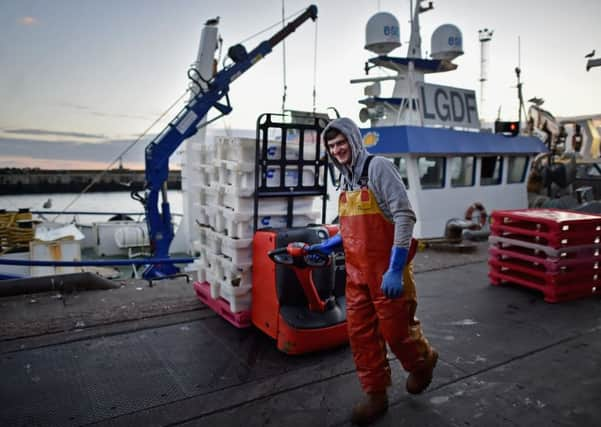Leader comment: Scottish fishermen's message for Boris on Brexit


For his part, the Foreign Secretary believes Brexit can be a “manifestation of this country’s historic national genius” and is about “re-engaging this country with its global identity and all the energy that can flow from that”. His speech last week – billed as offering solace to Remainers who fear the worse – turned out to be long on such rhetoric but short on detail. In contrast, the SCFF’s submission to the Scottish Parliament about the dangers of a no-deal Brexit is full of facts and figures, research by experts, the sort of stuff politicians in power are supposed to rely on to make sensible decisions. The no-deal Brexit is the scenario that we know most about as it involves existing World Trade Organisation rules.
There would be a 34 per cent tariff on processed meat and fish, for example, and the higher prices would result in an estimated 90 per cent fall in sales to EU. The figures gave an “alarming insight” into what the future would hold, the SCFF warns, saying it “could be catastrophic” for the inshore fleet. Strong words, but backed by evidence that’s fairly simple to understand.
Advertisement
Hide AdAdvertisement
Hide AdBrexiteers in the Conservative party have been demanding a bespoke trade deal with the EU that gives the UK virtually all benefits of membership, despite not abiding by the rules of the club. Mr Johnson has dubbed this the “have our cake and eat it” approach but it should really be called “pie in the sky”; the EU is never going to sign up to an agreement that makes it advantageous for its members to leave.
In insisting upon a deal that can never be done, the Brexiteers are pushing this country towards a no-deal Brexit. Theresa May appears to be searching for an agreement that retains enough “regulatory alignment” with the EU to allow reasonably frictionless trade and minimise the damage to the economy.
Staying in the Single Market in all but name would be the most effective way of doing this, but the few dozen Tory Brexiteers who regard this as turning the UK into an “EU colony” would almost certainly respond by bringing down her weak, minority Government.
If this happens and trade suffers as expected, voters should remember the warning from Scotland’s fishing industry, the politicians who took it seriously and those who did not.